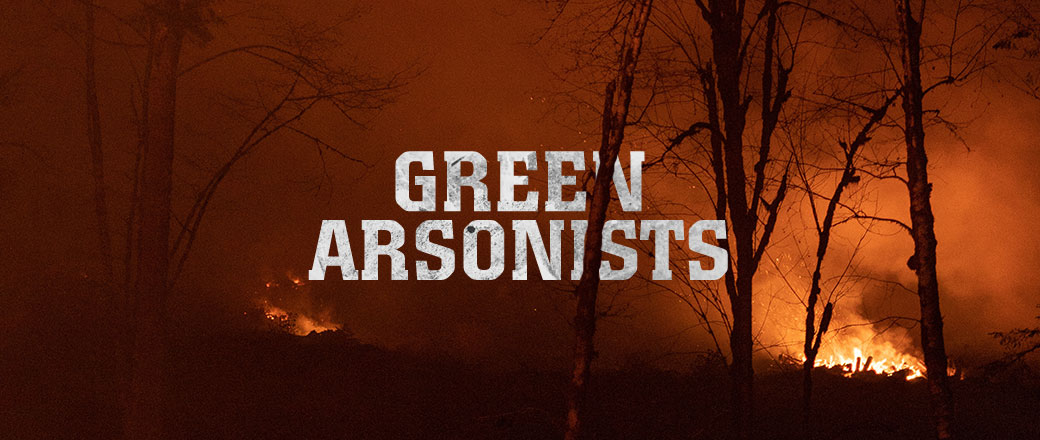It’s widely acknowledged that the oldest known custodians of this sunburnt country routinely burned the bush in their care for it. This habit not only mitigates the immense, centuries-old risk of devastating bushfires resulting from tonnes of dry fuel on the ground, but it also stimulates ecologically necessary new growth in the regenerating bushland.
However, extreme environmentalists, have gotten a stranglehold on forestry and vegetation management, especially in the Eastern states. Former Western Australia Senator Christopher Back was CEO of the Bush Fires Board of Western Australia and said, “Long-experienced forestry managers would regard 5 to 8 tonnes/hectare of flammable fuel as the upper, safe limit to send in crews to suppress fires. In the Black Saturday fires of 2009 in Victoria, fuel loadings of 50 to 80 tonnes per hectare and even higher were recorded – up to ten times the recommended load…”
“Green groups and others opposing fuel reduction strategies need to reflect on the perverse impact of their position and the influence they have had on governments’ policies in recent years. Their efforts to ‘save the environment’ have resulted in the decimation of this very asset. In eucalypt dominated bush, management of the South West Australian forests is the international benchmark for control of fuel loadings. The aim is to cool burn around 10% of the jarrah forests annually. In many Eastern Australian forests it is estimated the figure achieved is around 2% or less. It is simply not enough.”
Brian Williams, former captain of the Kurrajong Heights bushfire brigade and a veteran of 44 years of firefighting, once explained that green tape and heavy-handed bureaucracy has made firefighters’ jobs harder than ever in his decades of experience as captain. Volunteers are hard to come by, but forty are now involved to perform a controlled burn in the cooler months to oversee biodiversity and so on.
It used to be just six.
This sometimes means more than half of the needed burns simply don’t get done at all.
While embarrassing Greens senators like Jordan Steele accuse others of that which they are guilty and dexterously paint themselves as heroes and everyone who disagrees with them as a malicious criminal, the hostility of Greens and extremist environmentalists to proper bushfire management is permanently etched into the history books.
Greens senator @Jordonsteele has branded major party politicians 'arsonists' in an incendiary spray on climate policy as catastrophic fire conditions grip NSW. pic.twitter.com/lzsx9TFtwV
— SBS News (@SBSNews) November 12, 2019
From Green activists who have infiltrated government bureaucracies and decision making to the Green tape which makes volunteer firefighters’ jobs unnecessarily onerous, to the Green organisations which harangue politicians and the Greens Party themselves horsetrading inner-city election preferences for policy concessions, prolific political propaganda will never be enough to wallpaper over the extreme Greens’ culpability in bushfire disasters.
Almost all of a 9,242-hectare farm near Eidsvold, Queensland was burnt out by bushfire in 2011 soon after landowner Michael Baker purchased it. The fires caused over $300,000 worth of damage to infrastructure on the property so Baker thought the wise thing to do was protect his family, property and livestock from future fires by constructing fire breaks.
Mr Baker contacted 32 different government employees before he began the work to get advice on what width the Labor government would deem acceptable. The advice received was conflicted and ranged from a useless 1.5 metres wide (an average adult couldn’t lie down across such a small gap) to “1.5 times the height of the tallest tree”.
Queensland Labor’s patronising Vegetation Management Act 1999 (VMA) bans farmers from clearing regrowth when nature reclaims their farms. The VMA allowed an exemption for clearing remnant vegetation if the clearing was to establish a fire break, and provided the break was “no more than 20 metres wide or 1.5 times the height of the nearest vegetation”.
Narrow firebreaks are useless if a burning tree falls across the gap, so Mr Baker followed the advice of “1.5 times the tallest tree.” Trees ranged from 18 to 32 metres tall, but just an average of 25 metres was used and a firebreak width of 40 metres was planned. He responsibly informed the Department of Natural Resources and Mines of his plan and intention to commence work, but they never responded.
Two years later the Department responded that his fire breaks were too wide and they commenced legal action against the bewildered landowner. The Labor government wasted $2.2 million pursuing Mr Baker and the Magistrate found him guilty on dozens of charges, ordering penalties and costs totalling $999,780.
It seems cheaper to let your property burn under such opaque and incompetent Green bureaucracy. That is, of course, until human lives are lost.
The evidence abounds that extreme environmentalists are ecological vandals, “arsonists” in their own rhetoric, creating unconscionable obstructions to responsible forest and vegetation management and the largest ground fuel loads seen since humans first inhabited this continent.























